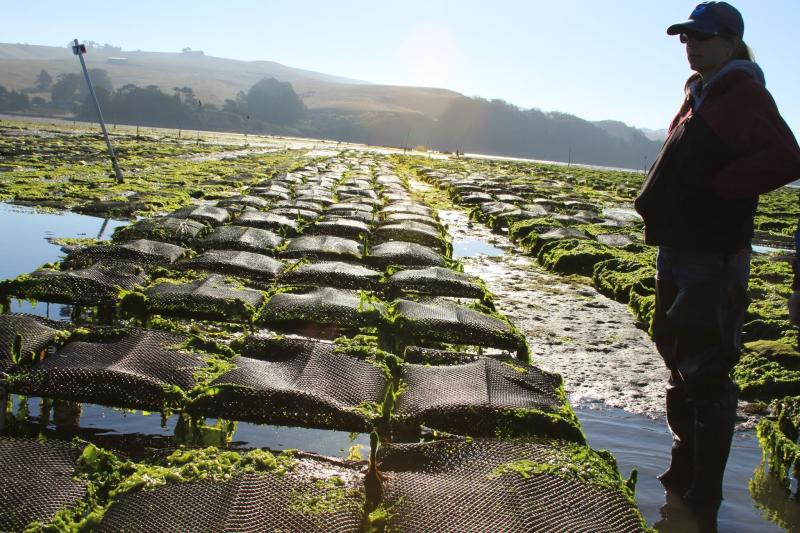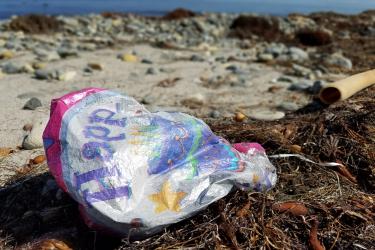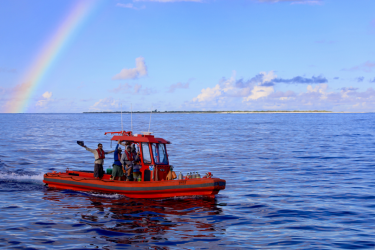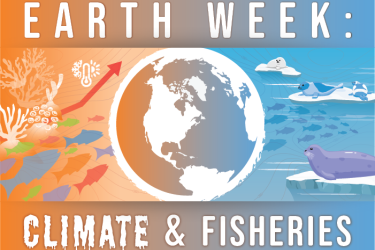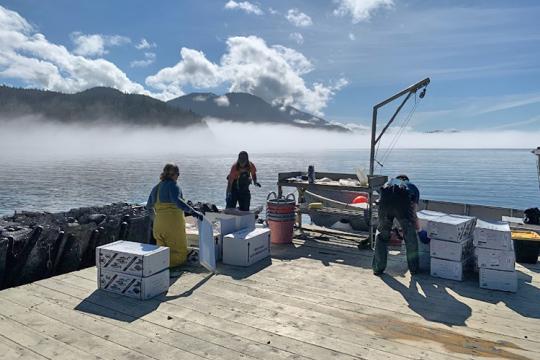Aquariums, seafood farmers, and others working on innovative public education for marine aquaculture topics can now apply for support through a new funding opportunity. Applicants may apply for up to $15,000 to spend within a one-year project to increase aquaculture literacy.
The Collaborative eeBLUE Aquaculture Literacy mini-grants are part of a partnership with NOAA and the North American Association for Environmental Education. They are part of NOAA’s latest efforts to increase understanding of environmental and marine science topics among educators, professional networks, and groups involved in community outreach.
“For these first of their kind mini-grants, we’re looking for innovative ideas that will engage communities on aquaculture, correct common misconceptions about seafood farming, and raise awareness of the importance of sustainable aquaculture for our economy and national food security,” said Brianna Shaughnessy, NOAA Aquaculture Education Coordinator.
Sustainable seafood farming—like we have in the United States—has the potential to meet the protein needs of a growing population. It puts less demand on natural resources like fresh water and farmable land. Along with providing sustainable seafood, some shellfish and seaweed aquaculture operations improve water quality in surrounding areas. Other forms of aquaculture are used to restore species and habitat. Marine aquaculture also provides a source of high-quality jobs and economic opportunities in coastal communities.
Consumer and community understanding of aquaculture is key to achieving the full benefits of aquaculture and seafood farming. However, research has shown that aquaculture literacy is low. That influences how those groups understand, support, and make decisions about aquaculture products.
“Most of the public still has limited understanding of aquaculture and may encounter information that can be out of date, inaccurate, or incomplete,” said Cindy Sandoval, communications specialist for NOAA’s Office of Aquaculture. “Having a trusted science source or community member share accurate information can increase aquaculture and sustainable seafood literacy.”
That’s why, since 2017, NOAA has worked closely with outreach groups on an initiative aimed at improving public awareness of advancements in seafood farming and its benefits and challenges. Traditionally, this work happens through the Coastal Ecosystem Learning Centers (CELC) Network, a consortium of 25 aquariums and marine science education centers across North America.
“Millions of people visit CELC institutions every year. By working closely with these aquariums, we provide them with the latest information on sustainable aquaculture, while also learning about community needs and perceptions from these place-based organizations,” said Maggie Allen, who coordinates the CELC network for NOAA’s Office of Education. “Tapping into the reach of CELC allows us to engage communities across the country on these important issues like aquaculture.”
To increase collaboration between the diverse communities working in aquaculture education, NOAA hosted a workshop last November. The workshop brought together aquariums, industry members, and environmental educators. This collective brainstorming to boost aquaculture literacy helped inform the mini-grant priorities. “As the workshop participants shared their ideas for literacy, it became clear that pairing educators, coastal managers, and the boots-on-the-ground farmers was the best strategy for the mini-grants,” added Shaughnessy. “Using this transdisciplinary approach enables us to fund projects that increase literacy and build a community of practice for aquaculture outreach.”
